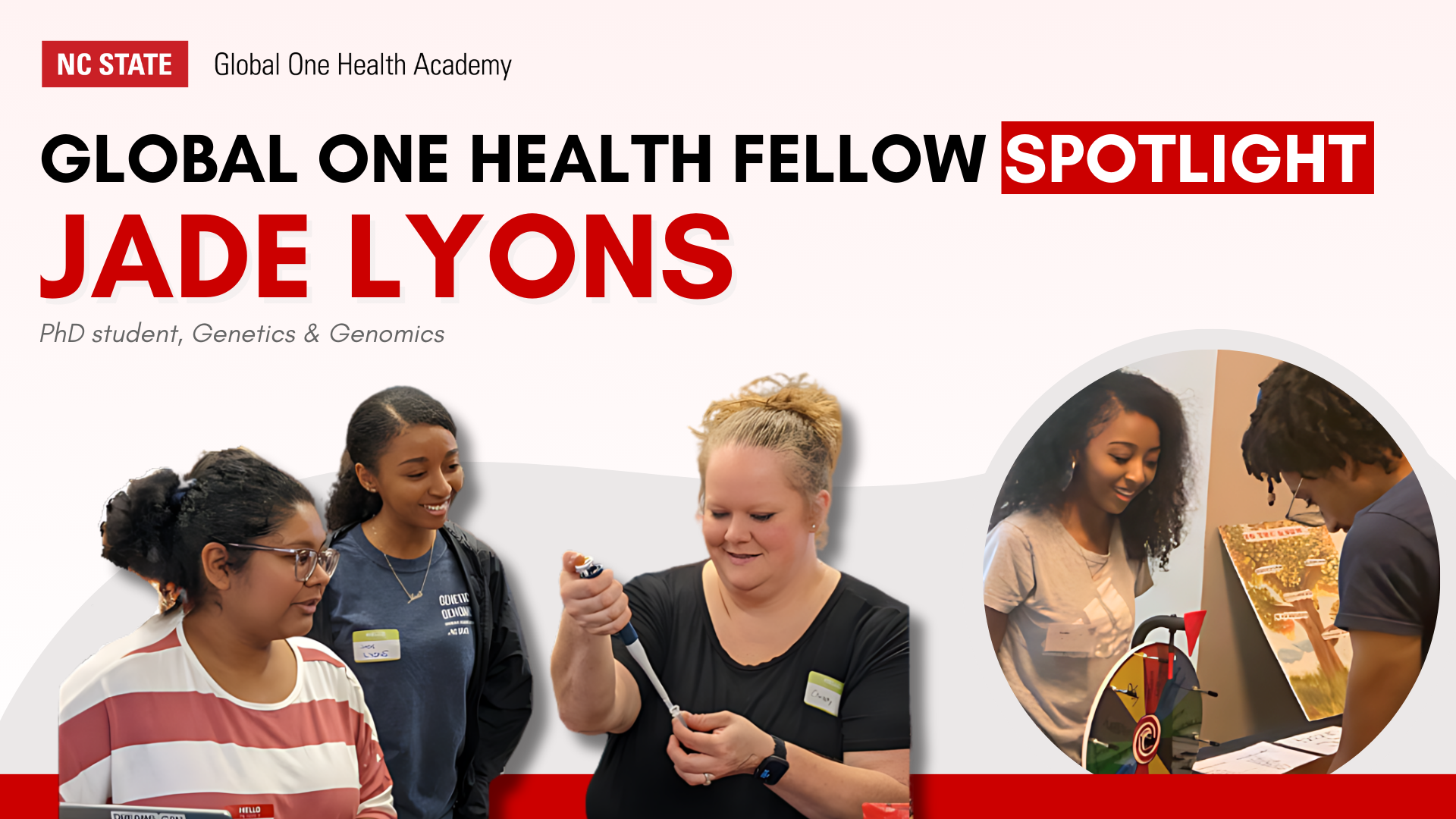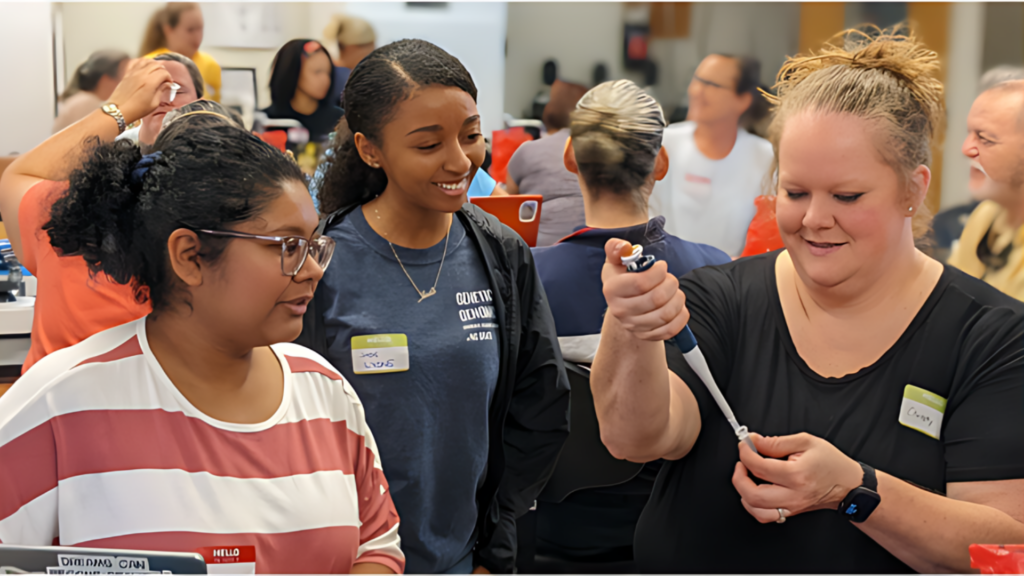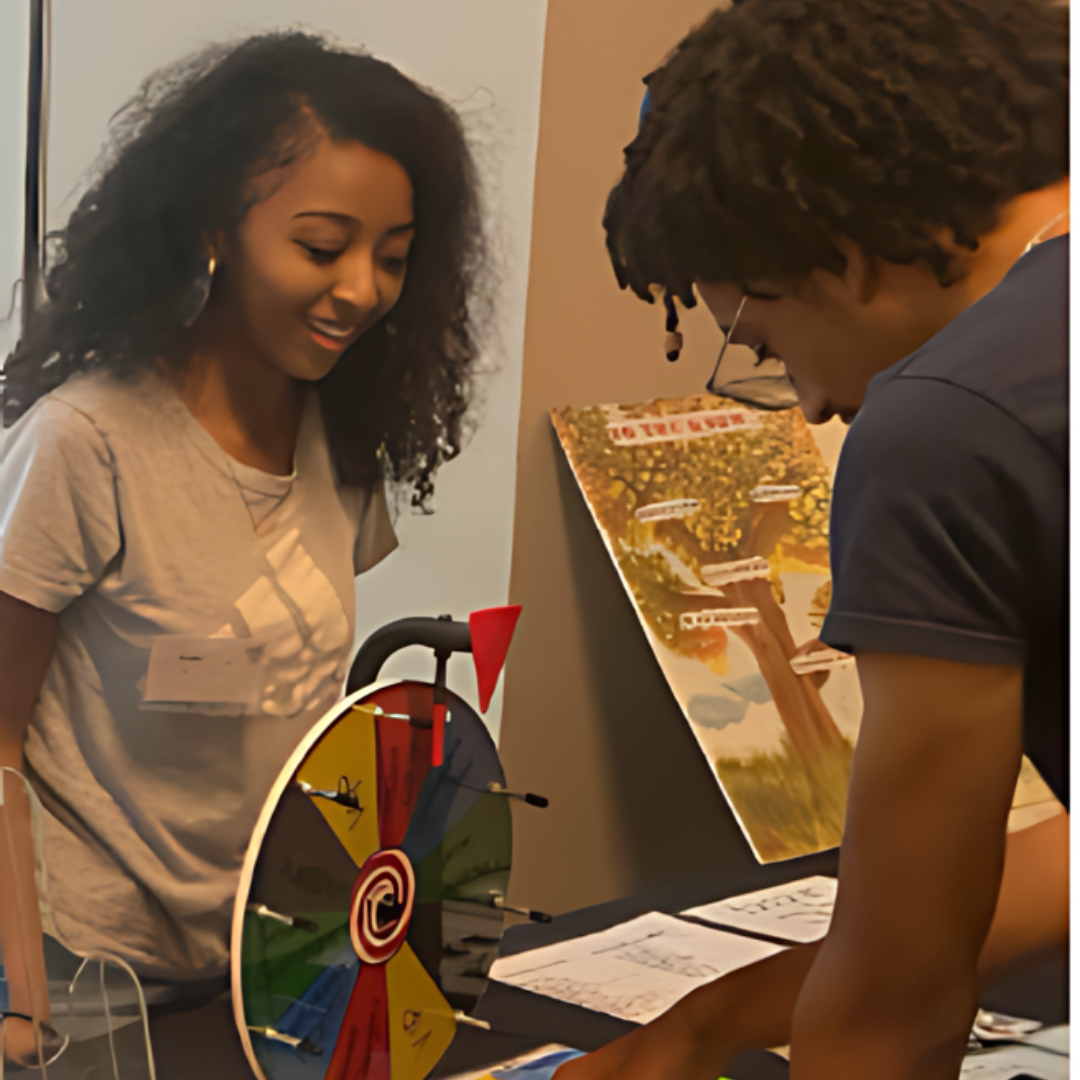Global One Health Fellow Spotlight – Jade Lyons

Each year, the Global One Health Academy funds an exceptional group of graduate students with One Health related research interests. During their one-year appointment, the Global One Health Fellows are offered many opportunities, such as professional development workshops, networking with One Health Professionals, and even the chance to have their own spotlight, like the one below! Meet Jade Lyons, third year PhD student in Genetics and Genomics, and also member of our first Fellows cohort.
What do you research?
My research focuses on developing transgene-free genome editing techniques in plants to enhance the expression of desirable traits, such as quality, yield, and nutrient content. Over time, a common practice in plant improvement has been the use of transgenic approaches, where foreign genes are introduced into the plant genome to achieve a desired outcome. However, this method often raises public and regulatory concerns about the use of genetically modified organisms (GMOs). To address these concerns, we are developing strategies to overexpress genes within their native context using genome editing tools like CRISPR/Cas9. This approach allows us to precisely modify the plant’s own genes, avoiding the introduction of foreign DNA while enhancing beneficial characteristics.
What are the implications of your research, and how does it fit into the One Health framework?
Plants have a direct and indirect influence on various aspects of everyday life including food, fiber, energy, shelter, and medicine. With the escalating challenges posed by climate change and a growing global population, it is essential to ensure the resilience and productivity of plants to meet society’s current and future needs. My research addresses these challenges by employing advanced genetic and biotechnological approaches. By improving crop resilience and productivity, we can mitigate the impacts of climate change on agricultural systems. This has direct implications for human and animal health by ensuring access to nutritious and diverse food sources, as well as for environmental health by promoting efficient agricultural practices that reduce greenhouse gas emissions and preserve biodiversity.

What/who inspired you to pursue this field of study?
Engaging in volunteer work at food banks and hunger relief organizations throughout my teenage years ignited my passion for food security, especially in exploring plant-based solutions for global health challenges. Additionally, the guidance and enthusiasm of my undergraduate professors and mentors combined with my immersive experiences in molecular genetic research labs, were instrumental in fueling and solidifying my interest in genetics.
What do you view as a critical global challenge in One Health, and how could your discipline contribute to addressing it?
I view food safety and security as a major challenge, especially in light of rapidly changing climate conditions. Traditional agricultural practices are increasingly strained by the need to produce more food on less arable land while facing unpredictable weather patterns, pest invasions, and soil degradation. However, with advances in sequencing and genome editing technologies, we can better identify and understand the genetic basis and regulation of desirable traits to address these challenges. This knowledge allows us to develop improved plant varieties that can thrive under adverse conditions and meet the nutritional needs of a growing population. Integrating these genetic innovations with sustainable farming practices can lead to more resilient agricultural systems that benefit farmers, producers, and consumers and help ensure a food-secure world.
How has the Global One Health Fellowship helped shape your career trajectory?
The Global One Health Fellowship has broadened my interdisciplinary perspective and deepened my understanding of how my research interacts with other fields. Through the fellowship, I have engaged in impactful collaborations with individuals from diverse specialties, equipping me with the necessary knowledge and skills to recognize the interdependencies among various health domains and effectively address global health issues. As I advance in my career, I will leverage these insights to contribute to integrated health solutions for our interconnected world.
What was your favorite part of the Global One Health Fellowship?
My favorite part of the Global One Health Fellowship was the “One Health: From Philosophy to Practice” graduate-level course co-taught between NC State, Duke, and UNC-Chapel Hill. The dynamic discussions and perspectives shared during our sessions were enlightening. The course’s inter-institutional structure made it a valuable environment for fostering such interactions. Serving as a teaching assistant for this course provided me with a unique opportunity to engage with students and collaborate with instructors and guest speakers from diverse backgrounds in the realm of One Health and related fields, all while refining my professional skills.

What are your next steps?
I will be entering my third year of study this fall, during which I will be preparing for my preliminary exams. I also plan to present my research at conferences, including the International Conference on Arabidopsis Research in San Diego this summer. I will maintain my active involvement in outreach initiatives, such as my lab’s Plants4Kids program, as well as continuing my role as a mentor to students who are interested in molecular genetics and synthetic biology.